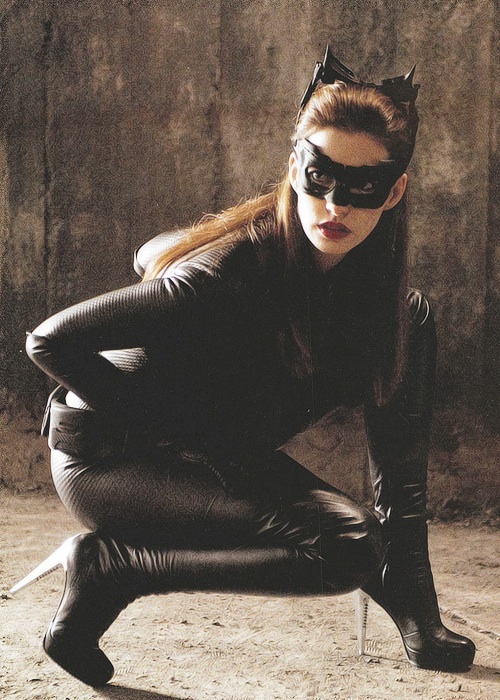She has the best of lines; she has the worst of lines. I am referring to the dialogue of Catwoman in this summer’s mega-blockbuster film, The Dark Knight Rises, based very loosely on Charles Dickens’ A Tale of Two Cities(which concerns the French Revolution).
Early in the film, Catwoman tells billionaire Bruce Wayne (Batman): “There’s a storm coming, Mr. Wayne. You and your friends better batten down the hatches, because when it hits, you’re all gonna wonder how you ever thought you could live so large and leave so little for the rest of us.” This is the best line of the film, encapsulating not only the film but also the world we live in today. It is one example among many of how The Dark Knight Rises rises above most of this year’s popular films in terms of intelligence and relevance, making The Avengers look like a Saturday morning cartoon.
The Dark Knight Rises is the third in Christopher Nolan’s Batman trilogy, which began with Batman Begins in 2005 and continued with The Dark Knightin 2008. In The Dark Knight Rises, Wayne has been lying low for eight years, disengaged from both his company and the world as he nurses his wounds, which include the loss of his life-long love (who was murdered by The Joker in The Dark Knight). Wayne’s energy only begins to return after he is robbed by Catwoman and she warns him about the coming storm.
In the context of the film, the storm is represented by Bane, a masked villain who was once part of the League of Shadows (introduced in Batman Begins) and who intends to complete the League’s goal of destroying Gotham City, though not before ‘liberating’ the city from the rich and powerful and giving it back to its ordinary citizens. In Bane, Batman has met his match and will require not only incredible determination but lots of help from his friends to save Gotham.
While not without flaws, The Dark Knights Rises boasts very high production values. Hans Zimmer’s relentless percussive score combines with perfect editing, great cinematography and an intelligent screenplay to produce an overwhelming, dark and intense epic that never lets you relax throughout its 164 minutes. But what stands out most is the quality of the acting. Christian Bale as Batman is at his best, Michael Caine as Alfred just keeps getting better, Anne Hathaway as Catwoman is surprisingly effective, Joseph Gordon-Levitt and Gary Oldman are outstanding as Batman’s police friends and Tom Hardy does as well as one can while wearing a mask.
Flaws include a few holes in the convoluted plot and the excessive action and violence one expects of a superhero film. But the most frustrating element in the film is the ambiguity represented by Catwoman’s best and worst lines (written by Jonathan and Christopher Nolan). The line quoted above, written prior to the Occupy Movement, suggests that the rich and powerful have abused their wealth and privilege and are about to face the revolution of the poor and oppressed masses. But the revolution comes with looting, chaos and kangaroo courts, seeming to imply that, unjust or not, the rich are at least better at governing than the poor.
Catwoman’s worst line comes near the end of the film, when she informs Batman: “About that whole no guns thing… Turns out I’m not as committed to it as you are.” This line is designed to elicit laughter, making it even more disturbing. After three films in which Batman impressively shames the use of guns and lethal force as effective means to achieve justice, we suddenly have someone persuasively arguing that guns may still be the most effective weapon against evil. Mr. Nolan, why this moral ambiguity of inspiring light mixed with the darkness of despairing disillusionment?
Film critic Gareth Higgins writes: “The dominant ethical assertion in The Dark Knight Risesis that human beings learning to live with thoughtful, non-reactive, nonlethal, selfless compassion (often at great personal cost) is not only our only hope, but the only thing that works.” I am not convinced, but this points to the fact that the film’s ambiguity invites discussion (about the film, about revolution and about society’s obsession with violence and guns).
Telling is the scandalous response to the horrific theater shooting in Colorado at the premiere of The Dark Knight Rises. Media analysis following the shooting did not focus on gun control or the national addictions to celebrity and violence which no doubt contributed to the shooting. No, it focused on the specific role of the Dark Knightfilms (thus missing the larger point) and on whether the shooting would negatively impact box office receipts for The Dark Knight Rises. A dark night indeed.
–July 30, 2012








Leave a Reply
You must be logged in to post a comment.